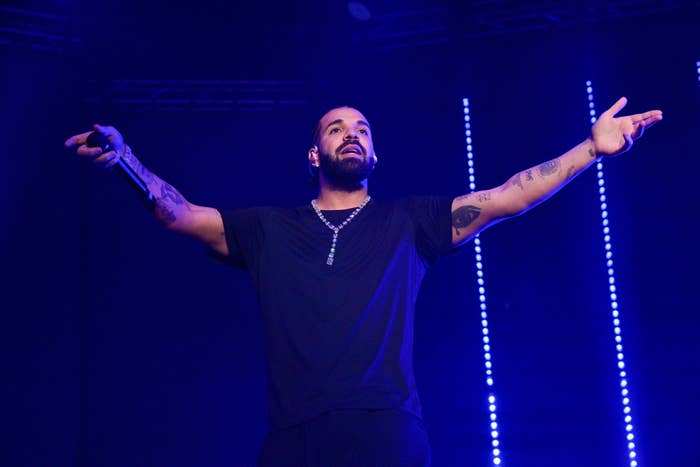
Voice Notes & Voicemails
Example: In 2012, rapper Drake was sued by his ex-girlfriend Ericka Lee for using a voicemail message she left to the artist in his popular single “Marvin’s Room.” The lawsuit argued that her voicemail “is highly significant to the overall work.”
Do you need permission?
Absolutely. You need permission. A voice note could be something that's copyrightable in most cases. It's not like if you are just calling somebody and leaving a voice message and it's very basic, such as this is who it is, this is why I'm calling. That's just their voice on a recorder. So that itself is not copyrightable, because it's not an original expression of an idea. When you need permission would fall under privacy laws in a number of jurisdictions. For instance, New York has a pretty, strong privacy law, and it's been updated several times. That privacy law says to use a living person's name, voice, or anything, you need permission from that individual.
When someone presses send on a voice note or anything audio with their voice, the recipient doesn’t therefore now own the audio?
There's no issue in the sense where you're just sending somebody a voicemail and you hold onto it. I don't know why you would want to do that, but you could have it and play it privately for friends. But the issue is using a recording for promotional gain. That's an area where it crosses over into you needing to get permission, because you're exploiting their name.
There are several instances where this doesn’t move past someone just calling it out on social media. Is there grounds for a lawsuit though?
There is a chance that it could be a copyright lawsuit, but I would say if it's just a benign voicemail, saying, "Hey, this is who this is, and this is why I'm calling," then that is not a copyrightable expression because there's no originality behind it. Copyright only protects original active expression. For a normal voicemail, this person would have to sue under the right of privacy in that jurisdiction. And basically what [she] would be alleging is that Drake took her voice and other identifying characteristics and used it for commercial [gain].
Why don’t we hear about many people going through lawsuits like this?
There aren't a lot of cases that have gone through the whole legal process and have reached a decision, probably because these things get filed and settled pretty quickly. This happens very often. For an artist like Drake, it's probably worth it because imagine this person reached out to Drake before the lawsuit and asked for some sort of license to use the voicemail. If they did and Drake is just dragging feet or didn't make an offer of any kind, then the next step for that individual to file a lawsuit, take it through the process at least initially, and hope that Drake would not want to take it through the entire trial and settle for like a larger amount or any amount at all.
Doctored photos for cover art
Example: In October 2023, Drake released his single “Slime You Out,” in collaboration with SZA. The single’s artwork included a doctored image of Halle Berry getting slimed at the 2012 Nickelodeon Kids Choice Awards. Following the image’s release, Berry revealed that Drake asked permission to use the photo of her, but she said no. She stated that although she was disappointed by his decision to move forward with using the image, she wanted to be the “bigger person.”
Who do you need permission from?
In that instance, [you need permission from] both individuals. For the photographer that took the picture, that photographer owns a copyright on the picture. Every copyright owner has several rights with respect to copyright, and one of those rights is to prepare derivative work. So if I take a picture and it becomes famous and somebody puts it on the internet and decides to doctor it and then use it for their own commercial gain, that third party would be in violation of my right. Halle Berry in this case, although she doesn't own the picture, the picture is being used because everyone knows who Halle Berry is. And so, Halle Berry has a right of approving or her name and likeness being used for somebody else’s commercial gain. And so Halle Berry could sue under the right of publicity. She couldn't probably sue under privacy because she's a famous person, but she could sue under publicity, which in most states, means that somebody is taking the name and likeness of a famous person and using it for their own commercial gain.
In a case like this in which Drake asked permission from both the photographer and Halle Berry, and one approves and the other doesn’t, can he still use it without legal ramifications?
I don't know under what circumstances the photographer took the picture, but in a lot of cases, if the photographer is taking a picture of a famous person, that famous person would have had to sign a release, giving the copyright owner of the picture the right to those photographs. If Drake had approached the copyright owner of the picture, the photographer, and the photographer allowed Drake to use the picture, that exact picture would have to have been used. It would be more complicated if the photographer said yes and somehow there was some right to change the photo in some way. That makes the situation a little different. But if somebody is approaching the photographer of the actual picture they took, the photographer had a release from the model, then that specific picture can be used.
Sample of another song
Example: In July 2022, Beyoncé released her critically acclaimed album, Renaissance. Many fans noticed that Kelis’ 2003 hit, “Milkshake” was sampled on Bey’s single “Energy.” In a series of messages on social media Kelis called out Beyoncé for sampling her single without asking her for permission. It is important to note that although Kelis is the performer, The Neptunes—production duo made up of Pharrell Williams and Chad Hugo—are owners of the rights to the single.
Who do you need permission from?
In this case, if Beyoncé got the rights from the producer who owns all of the music, then that's all that Beyoncé is required to do.
Legally, this is all above board, but is there such a thing as common courtesy in this case? Legally, Beyoncé's not under obligation to the artist. The artist doesn't own any of the rights to the song. Could it have been a nice courtesy? I'm sure. But, at the same time, I'm not sure what the artist would have expected.
Social media content
Example: In 2016, Kanye West sampled a viral video of 4-year-old Natalie Green praying for his single “Ultraight Beam.” The family sued, saying that they never received a license agreement or payment for the use of Natalie’s voice.
Do you need permission and from who?
That's not allowed. A lot of things [are at play]—right of privacy and the right of publicity. The basic framework of how those two laws work together is that it's kind of like a spectrum starting from a party who's really a private person or not the public eye, and then it goes to public figures. And so, for the right of privacy, it applies to people like a child whose video went viral. They are private citizens. They’re not known to the public, so you cannot then take a private person or person’s image and then use that for commercial gain. That is violating the mother and the child’s right of privacy.
You can’t really use the right of privacy for public figures. So then where the public figure fits into that, the way the laws are meant to protect whatever expression it is, is that if the law of privacy doesn't apply, then typically the law of publicity kicks in, where if you flip the scenario and the mother and the child used an image of Kanye to sell something that they're peddling, then right of publicity would protect somebody like Kanye West.
Would the private citizens be able to receive profits from the music or product using their viral clip?
What they would be able to receive are damages. You could say, a video didn’t show them in the best light, or maybe I got emotionally harassed at work and at school because Kanye put this video out. So then you make the calculation of what those damages are. Another way of defining damages is maybe the proceeds of the song. It wouldn't just be a simple calculation… It would be explained in that framework of "my client deserves it because of the impact on their lives."

